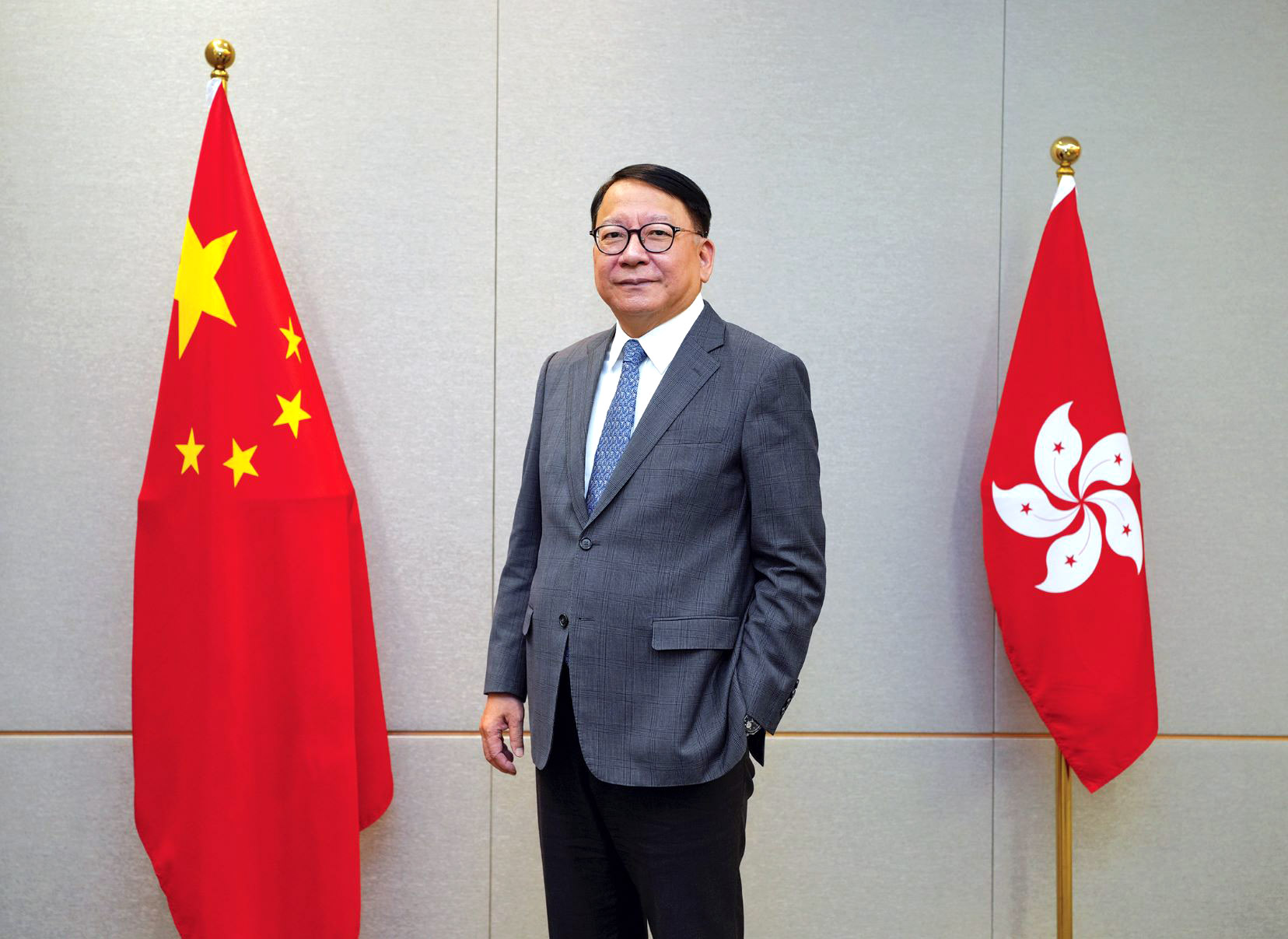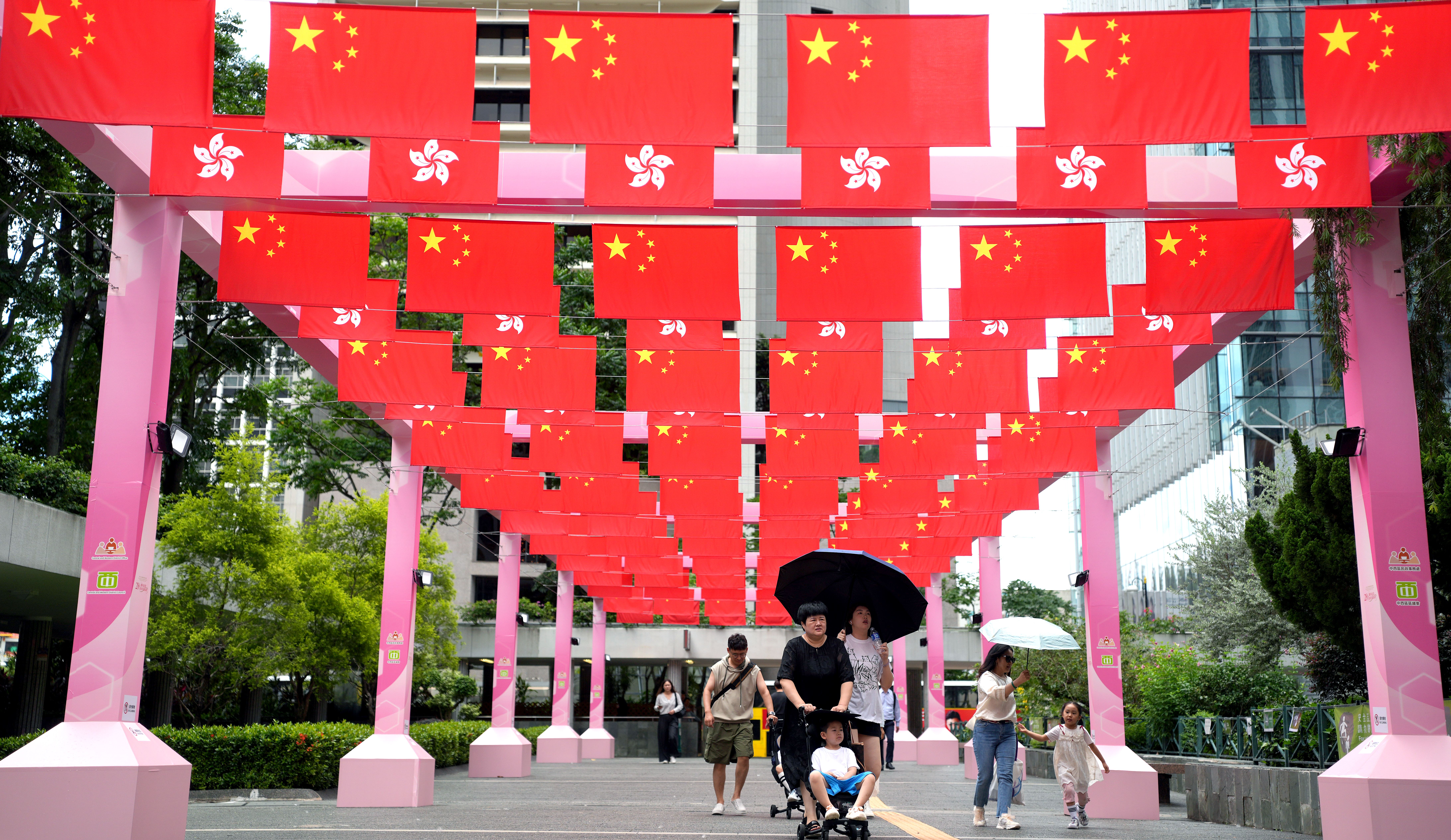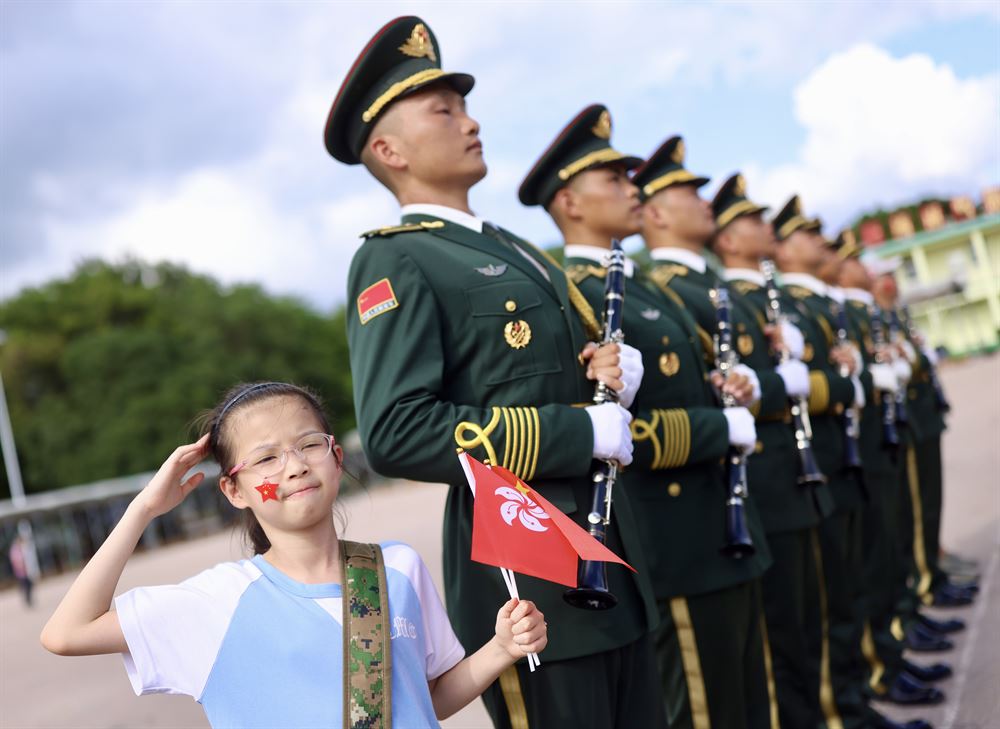
Hong Kong Chief Secretary for Administration Eric Chan Kwok-ki emphasized the fundamental importance of a mechanism to safeguard national security, which he said underpins Hong Kong’s governance priorities of boosting the economy and improving people’s livelihoods.
Monday marks the fifth anniversary of the enactment of the Hong Kong SAR National Security Law. In an interview ahead of this milestone, Chan reaffirmed the city’s commitment to closing loopholes in safeguarding national security, while fostering a strong sense of national identity among Hong Kong’s youth.
The NSL has significantly enhanced Hong Kong’s overall competitiveness by creating a stable and secure social setting, Chan said, citing various economic and livelihood indicators showing positive trends since the law’s introduction.
Hong Kong remains recognized as the world’s freest economy and a leading international financial hub. The city’s GDP rebounded from a 3.7 percent decline in 2022 to 2.5 percent growth last year. The median monthly household income increased from HK$27,200 ($3,465) in the second quarter of 2022 to HK$30,000 in the first quarter of this year.
In 2024 alone, over 500 companies from the Chinese mainland and overseas established or expanded their presence in Hong Kong.
He highlighted the government’s ongoing efforts to attract global talent to the city through diverse programs. By the end of May, these initiatives had received over 480,000 applications, with about 320,000 approved and over 210,000 people relocating to the city.
ALSO READ: Chief secretary: NSL a solid shield protecting Hong Kong
Hong Kong has recorded three consecutive years of population growth, with more people opting to live, work, and invest in the city, he said.

To improve residents’ quality of life, particularly among vulnerable groups, the government has rolled out a series of initiatives aimed at broadly sharing the benefits of economic growth.
For example, the Strive and Rise Programme, launched in 2022, provides financial assistance and professional mentorship to secondary school students from underprivileged families.
Support programs are also available for single-parent families, people with disabilities, and elderly households. In the 2023-24 school year, the government introduced a school-based after-school care service to provide targeted assistance to parents and students in need.
Institutional guardian
Chan attributed these societal improvements to stable governance made possible by the security and stability ensured by the NSL. National security is the foundation of everything, he said, adding that “without it, development is merely empty talk”. He recalled the city’s stagnation during the widespread riots in 2019, a “sad time” when personal safety could not be guaranteed.
Chan said that after the NSL’s implementation, Hong Kong continued to strengthen its institutional framework, including electoral reforms in 2021 to uphold the “patriots administering Hong Kong” principle, and the enactment of the long-awaited Safeguarding National Security Ordinance in 2024.
These legal frameworks have established a solid foundation for protecting national security, ensuring social order, and preventing a recurrence of the unrest seen in 2019, Chan said.
In 2024, amendments were made to the Social Workers Registration Ordinance, and the revised Trade Unions Ordinance is scheduled to take effect in January. These measures aim to prevent activities that endanger national security under the guise of social or union activities.
As the chief secretary for administration, whose job includes overseeing nine government bureaus, Chan emphasized his responsibility to efficiently coordinate departments to protect national security, and prevent misuse of government resources.
In his role as chairman of the Constitution and Basic Law Promotion Steering Committee, Chan highlighted the importance of promoting the Basic Law and patriotic education in communities and schools — viewing these efforts as essential for mitigating national security risks.

Youth engagement
Recalling the social unrest of 2019, Chan said it was particularly disheartening to see many young people engaged in acts that disrupted social order and jeopardized their own futures. Many had never even been to the mainland and were easily influenced by incitement and fostered misunderstanding and even hostility toward their motherland.
He stressed the importance of strengthening residents’ connection to the country and fostering a strong Chinese identity. National security is best safeguarded when people genuinely love and instinctively protect their nation, Chan said.
To encourage this sense of belonging and connection, the government actively promoted visits, exchanges, and work opportunities on the mainland.
In 2021, the government introduced the Greater Bay Area Youth Employment Scheme, facilitating eligible Hong Kong youth to gain professional experience in Hong Kong-backed companies in the nine mainland cities across the Guangdong-Hong Kong-Macao Greater Bay Area.
READ MORE: HK young people offered over 400 valuable internships
Primary and secondary schools are supported with exchange programs that ensure each student has the opportunity to visit the mainland at least once.
Additional courses, extracurricular activities, internships, and social practices are arranged to help younger generations deepen their understanding of national development and cultivate law-abiding awareness through first-hand experiences.
When the youth stay on the right path, Hong Kong’s future will certainly be limitless, he said.


